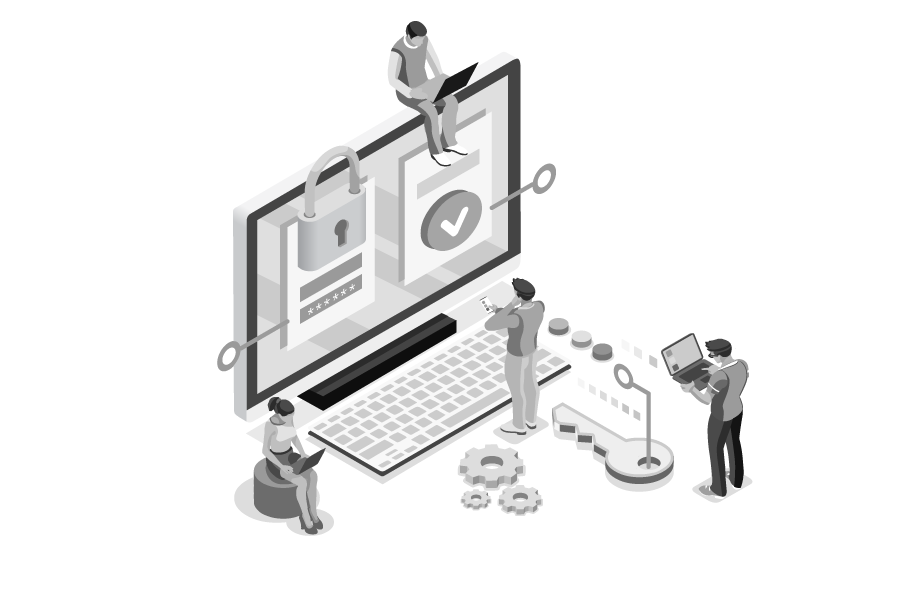To understand how well your website fulfills its purpose, companies use web analytics to collect and report data that is meant to give insight into the user experience – but what does that mean for users’ privacy?
While it is important to have a robust understanding of how people use your website, some say companies collect too much personal data on users, presenting ethical concerns over personal data privacy.
Web analytics can give you useful knowledge about what the typical user experience is like for a specific website. Web analytics metrics can include things like a site’s bounce rate, exit rate, conversion rate, the average time spent on a webpage, and the average time spent on a website.
In this post, we’ll break down what sort of personal information may get stored to use for web analytics, explain some key privacy concerns, and why online privacy is important.
What personal data gets collected?
- IP addresses
It is common for web analytics tracking tools to record each user’s IP address, though the end user may not have access to the IP address when viewing analytics reports. Some countries consider an IP address a piece of sensitive information because it can easily be used to identify a specific website user. The European Union, for example, requires that companies must get each user’s permission to collect pieces of sensitive data, according to IONOS.
- Cookies
Popular web analytics tools, including Google Analytics, uses browser cookies as an anonymous identifier to help advertisers understand user behavior, and websites can provide a more customized user experience. There are first-party cookies, which are placed by the website you visit, and third-party cookies, which are placed by a website’s partner to help tailor ads, according to the Federal Trade Commission. Every time a new user visits a website, they receive a client ID that’s stored as a cookie on their browser. This can help sites understand how many new users and returning users they see, but it also gets used for other purposes, and sometimes data is sold to other parties. In 2011, Germany banned Google Analytics over its use of cookies, according to a blog by Nebo.
- Location data
Web analytics tools can also filter users by their geographic location. While this helps companies understand where their clients are from and be used to predict future behaviors and inform business decisions, it can also lead to privacy concerns if people do not want their locations known.
- How much time you spend on a website or web page
Users can get tracked based on how long they spend on certain web pages, how they navigate around a website, and what website referred them to your site. Although it can be useful for web developers to know where people are lingering, it can also tell companies what a person is looking at and reading about online, without them realizing their activity is being monitored. Google was sued for collecting users browsing data even if they were using the browser’s “Incognito” mode to keep their online activity private, according to an article by Bloomberg.
- Device identifiers
Mobile applications can also track your activity. Some analytics companies use device identifiers to keep track of the applications that are on a device, according to the FTC. Apps can also track users’ real-time physical locations and sell the data to advertisers, according to an article by The New York Times.
Why should companies care about data privacy?
While web analytics can be a useful tool for your business and web developers, many say companies have an ethical responsibility to protect peoples’ privacy while they’re online. Plus, detailed user information and data that could identify someone is likely unnecessary for a company to collect if it is simply trying to understand its website metrics.
Public concern over personal privacy is also growing, and research has shown that people want control over who has access to information about them. The European Agency for Fundamental Rights found that 41% of Europeans do not want to share personal data with private companies, and Pew Research found that 75% of Americans feel it is “very important” to control who has information about them, according to an article in CPO Magazine.
Also, with Google Analytics, data that is collected isn’t just shared with the business that is collecting it, but also will other Google products, including Google Ads, according to CPO Magazine. So, that means businesses may be helping their competitors understand audiences from data collected through their website.
What is being done to help protect online data?
Governments around the world are beginning to form new laws and policies to regulate how web analytics are collected, and what type of data is allowed to be collected. Some of these laws have already led to sweeping changes in how data is collected, and users are getting more insight into which companies are collecting information about them while they’re online.
To further combat intrusive data collection, private companies around the world are going ahead and creating their own web analytics tools to give web developers insightful metrics while respecting and protecting user privacy.
This technology often involves using aggregate data, so there’s no need to build user profiles or understand individual user details to generate analytics reports.
With Anatagli, visitors’ personal data is never stored, so data is anonymous and only used to understand key metrics in real-time. The data is then presented in a simplified user interface that gives developers everything they need to know about a website to help inform future decisions and improvements.
Anatagli is compliant with the European Union’s General Data Protection Regulation, the California Consumer Privacy Act, and ePrivacy Regulation.

